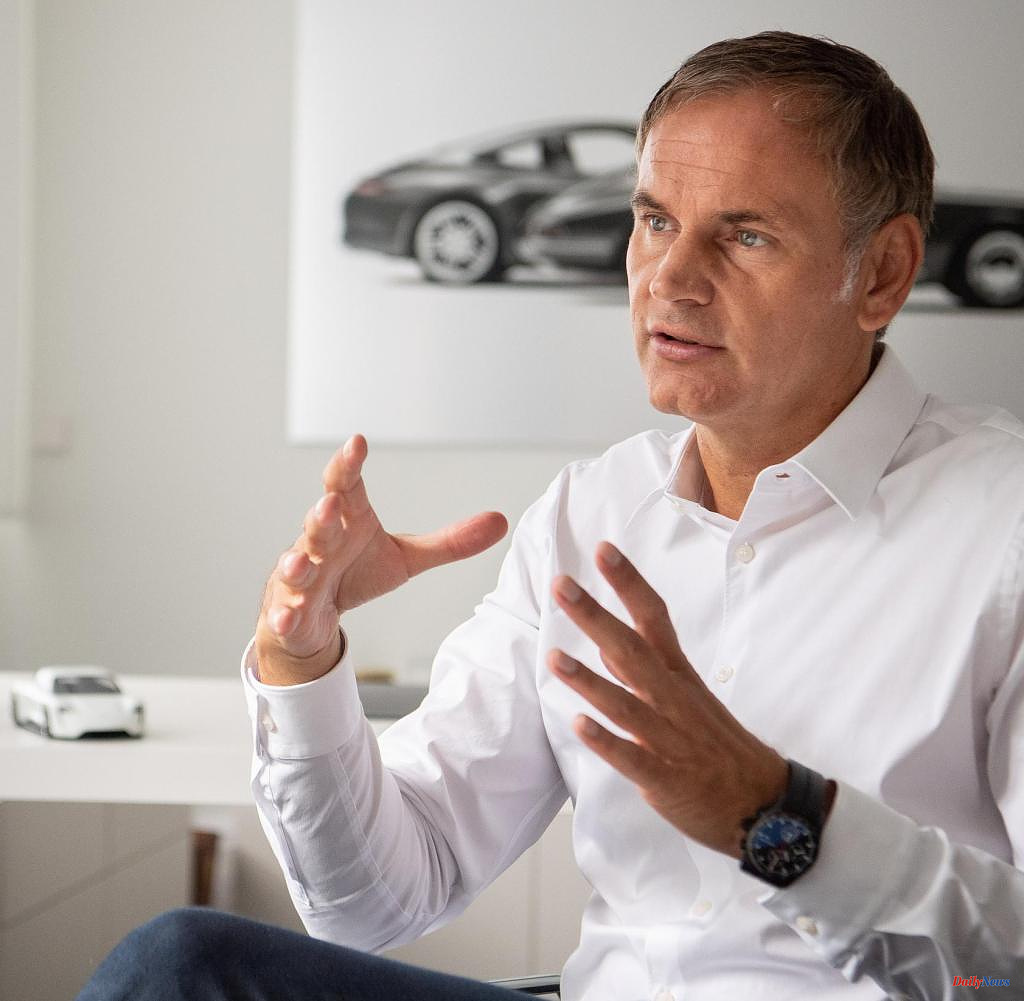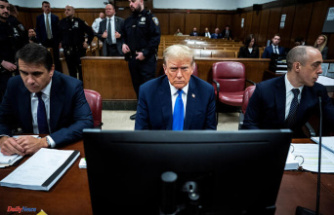When it comes to good corporate governance, Christian Strenger, 79, doesn't take a joke. The economist and former Deutsche Bank manager is considered the most prominent shareholder protector in the republic.
He sharply criticized Bayer's takeover of Monsanto ("The shareholders went to bed with pharmaceuticals and woke up with agrochemicals."), he diagnosed "multiple organ failure" at the scandalous company Wirecard.
Strenger, who managed the fund company DWS until 1999 and later strengthened the supervisory boards of various DAX companies, including TUI, Metro, Fraport and Evonik, was a founding member of the government commission "German Corporate Governance Code" until 2016. Hailed as the "cunning doyen of the scene" and "Governance Grande" ("Manager Magazin"), Christian Strenger now heads the Corporate Governance Institute of the Frankfurt School of Management with the rank of Director.
WORLD: Mr. Strenger, the bad word has been handed down from the former Deutsche Bank boss Hermann Josef Abs (1957-1967): "The kennel is for the dog, the supervisory board for the cat." The impression that the councils in Germany stage your order with more effort today, but still not work more effectively than in the past?
Christian Strenger: Positive results can only be achieved if a sufficiently qualified and independent body represents the interests of all shareholders over the long term, instead of seeing itself as the executive body of the major shareholders. The tasks have also become much more complex, so that expertise is required instead of ticking off the boxes. The three major shareholders (the Porsche and Piëch families and the state of Lower Saxony, editor's note) often do things differently.
WORLD: Winterkorn, Müller, Diess – the tenures of the last three VW bosses ended in discord, quarrels and quarrels. What connects all these failures - always the same supervisory board?
Strenger: To a crucial extent, yes, because he failed to live up to his responsibilities due to the inadequate selection procedure and subsequent acceptance of personal misconduct for too long.
WORLD: In view of Mr. Diess' repeated "conspicuous social behavior", you said to WELT AM SONNTAG, "a really convincing successor solution should have been in the drawer at least for a long time". Do you think that Diess is unsuitable for running a large company?
Strenger: Diess is an engineer-driven expert with a high level of transformation expertise: In the long run, however, only a CEO with high social skills can be accepted in a global corporation.
WORLD: Now Porsche boss Oliver Blume is to lead Volkswagen AG in a personal union: Can this task be done part-time?
Strenger: No, this is exactly where the Supervisory Board made a misjudgment, because even the role of chairman requires the whole person with an intensive presence in order to take all stakeholder interests into account. A convincing successor would therefore not have to have a double burden in addition to secure social skills.
WORLD: It was convincing after all, and that is rare enough at VW, that this time not a single word from the supervisory board got out in advance.
Strenger: The latter was probably only because the Lower Saxony representatives who had previously tolerated Mr Diess feared that they would be burdened in the upcoming state elections by the China problem – which Diess recently downplayed.
WORLD: VW generally takes little account of shareholder rights. The contributory negligence of the then Chief Financial Officer and today's Chairman of the Supervisory Board, Pötsch, in the diesel scandal was not pursued any further; VW also seems to have little interest in Winterkorn being held criminally responsible for the diesel fraud. The trial date was repeatedly postponed, sometimes because of Corona, sometimes because of Winterkorn's hip operation. For the 2021 financial year, you, as a long-standing private shareholder, have applied to refuse to approve the actions of the VW board. Why?
Strenger: The Executive Board supported the unjustified low payments made by Messrs. Stadler and Mr. Winterkorn for their release from liability for the consequences of Dieselgate. The "pardon payments" made at the expense of the company coffers for the inadequate capital market communication of the Dieselgate scandal by Messrs. Diess and Pötsch were also a reason for the application to refuse relief.
WORLD: Not only from a corporate governance perspective is it absurd for VW board members to hold two board positions.
Strenger: The fact that Mr. Blume can now fill the CEO post at both Porsche and VW is unbelievable. It also doesn't help that a CFO who has been on the job for a short time but has no operational automotive experience in Wolfsburg is supposed to second him as COO.
WORLD: There is no compensation for the shareholders either: on the one hand, VW only distributes just under 20 percent of the net profit to its non-voting preferred shareholders, and on the other hand, their dividend is only 0.8 percent higher than that of the ordinary shareholders who call the shots.
Strenger: VW uses, as it is called in technical jargon, all design possibilities to treat the public shareholders inappropriately badly.
WORLD: Is it a coincidence that Blume was portrayed as a Lindner whisperer in the ZDF series "Die Anstalt" three days before Diess was kicked out, who lobbyed the combustion engine with e-fuels in the coalition agreement?
Strenger: That is an ugly confirmation of political influence, which should certainly also be supplemented by the question of the introduction of a maximum speed, which would be disadvantageous for Porsche.
WORLD: VW is essentially a family business run by the shareholders' committee of the Piëch families
Strenger: If, like many other listed family companies, such as BMW or Henkel, it adhered to established rules and treated independent shareholders fairly, then the noticeably underperforming share could become a worthwhile investment.
WORLD: Foundation-controlled stock exchange companies such as Fresenius or Thyssen-Krupp are examples of lousy corporate governance, and even "normal" stock corporations such as Bayer show their shareholders - see Monsanto - rather little respect. In short, has the control function of companies by the capital market in Germany, which is often propagated in textbooks, failed?
Strenger: The vigilant pursuit of shareholders' interests by the large fund companies and private investors was at least able to prevent negative excesses. Outliers like VW are, thank God, regrettable isolated cases.
"Everything on shares" is the daily stock exchange shot from the WELT business editorial team. Every morning from 7 a.m. with the financial journalists from WELT. For stock market experts and beginners. Subscribe to the podcast on Spotify, Apple Podcast, Amazon Music and Deezer. Or directly via RSS feed.












